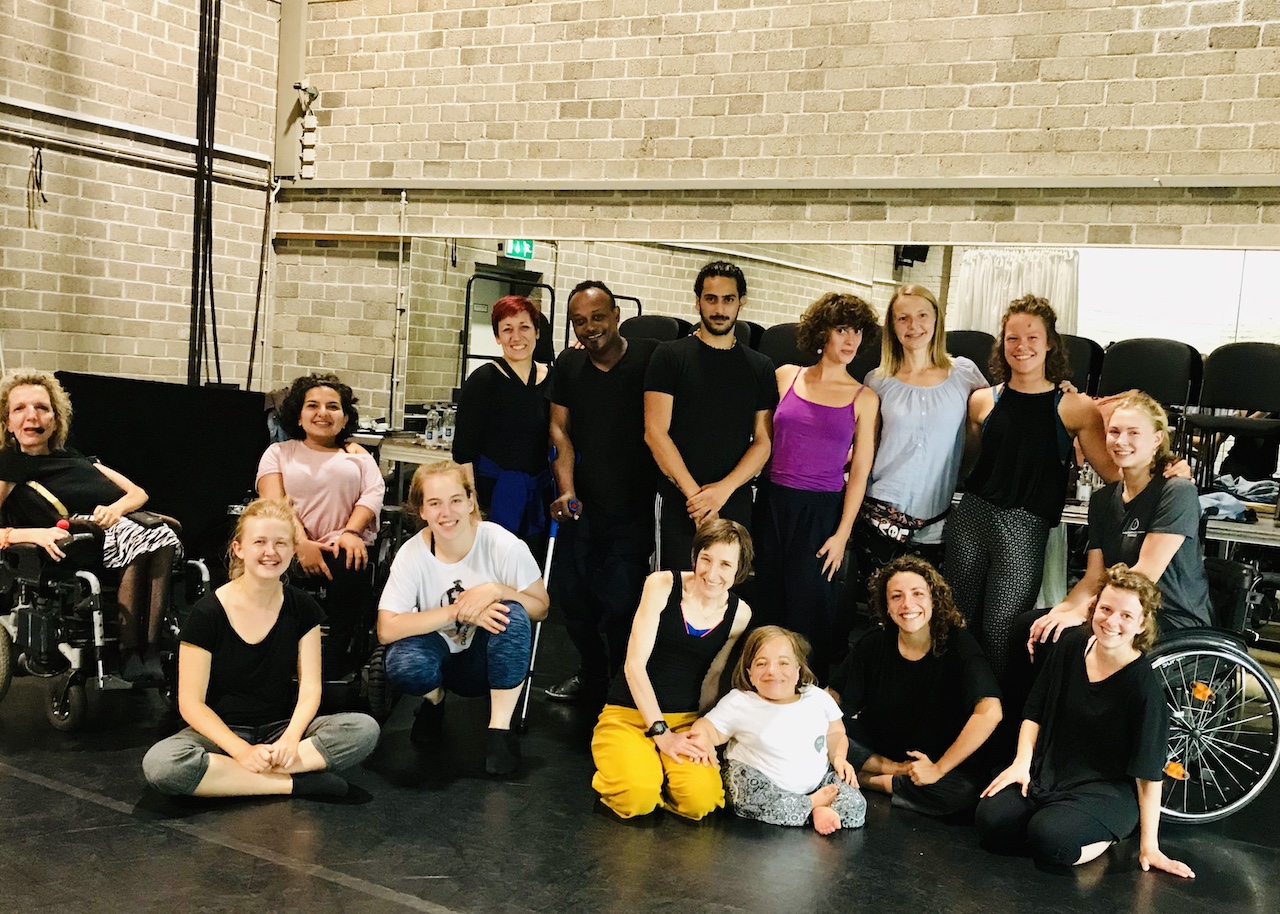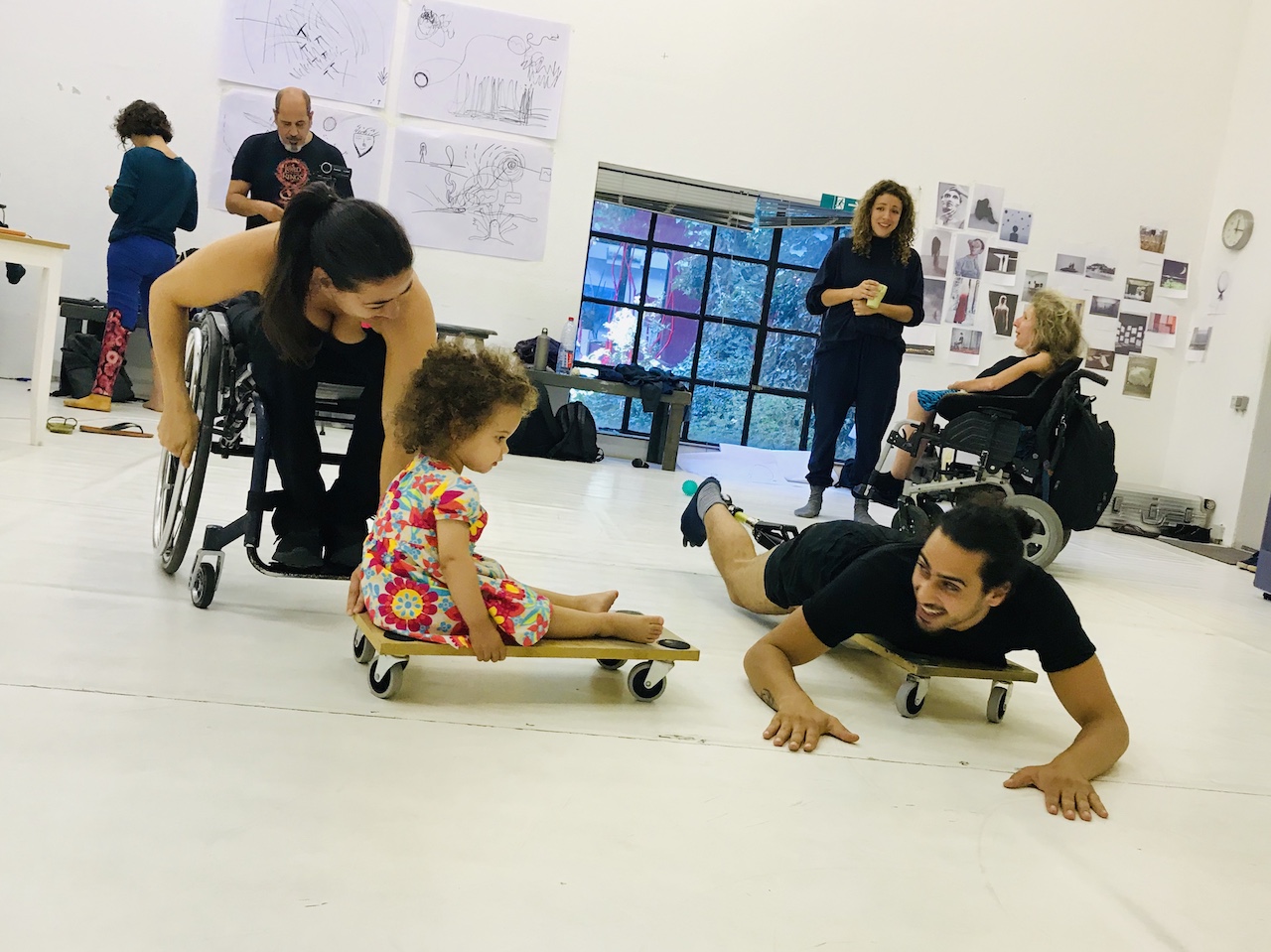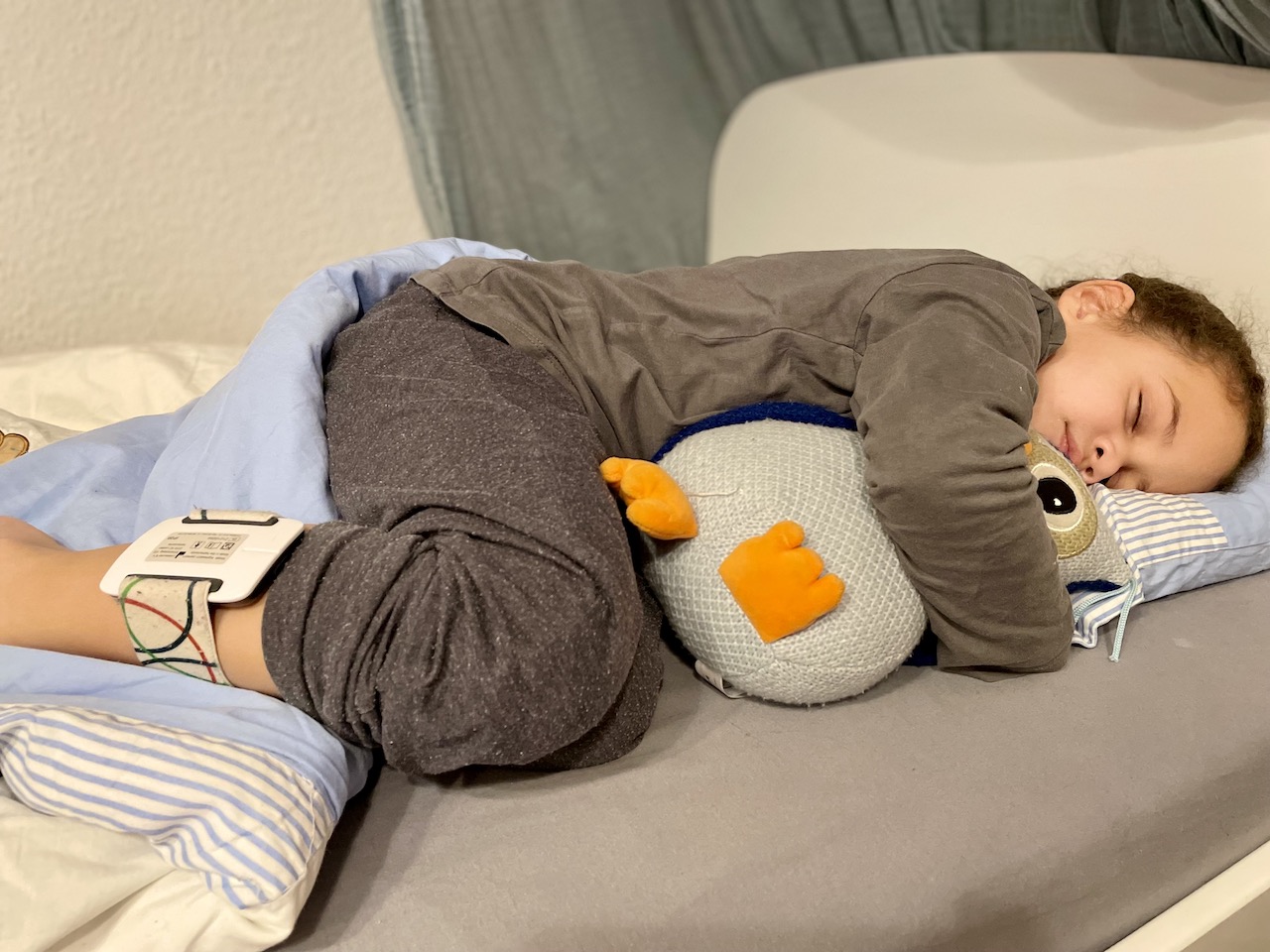
«Mommy, please help me, the wiggle is coming back» is a phrase Anastasia hears from her daughter when the girl notices during the day that a seizure might be coming on or that something is changing in her body or her perception. Beyond the limits of the physical, mom and daughter try to find alternatives besides the necessary classic drug treatment and seizure monitoring with NightWatch, which increase the quality of life and also bring joy and motivation. «It is important that the children know their resources, such as strength and resilience, and that they can use them in necessary moments,» says Anastasia Olfert. «We learn that through breathing exercises, dance, movement, accessing physicality, and we also have tonis with relaxation journeys and we do wellness from time to time.» The medications often make her daughter tired and dizzy, and through the joy of movement and the rhythm of dance, her daughter is able to shake off that drowsiness.
Her bright daughter Aurora has invented the word «wiggle» for her epileptic seizures, which occur mostly during sleep, and announces possible seizures to her mother by saying, «Mom, the wiggle is coming again.» Through this word, the child is able to accept the disease and symptoms well.
Aurora was diagnosed with West syndrome / BNS epilepsy at 7 months of age.

During rehearsals with the DIN A 13 tanzcompany, Aurora is in the middle. Photo: private
The HEK rejected the application for NightWatch and recommended Epicare. The objection of the mother with a renewed justification from the physician was repeatedly rejected by the health insurance. There was no call from the health insurance company or any personal contact, the requests were formally rejected without further justification. «Parents have to justify themselves all the time when they have a need for their sick child and a need for support, while we already have a lot to do with the care and support and the necessary occupation. No one ever spoke to me, there was no face-to-face conversation and no room was given for individuality. That goes very much to the mind,» says Anastasia Olfert, looking back on the application process.
Ms Olfert then became a member of the Social Association VdK Germany, a lawyer was assigned to her and the VdK took over the proceedings before the Cologne Social Court. The preparation for the procedure was a lot of work, all hospitalizations, doctor visits, findings, prescriptions etc. had to be proven from birth. An expert opinion was requested from a renowned epileptologist and submitted to the court.
The social court granted the mother’s application in January 2023 and the HEK has now approved the application for reimbursement of NightWatch. From the side of the HEK came a letter in which «the assumption of costs after renewed examination» was confirmed.

When asked where she finds her energy, Anastasia Olfert replies «I get the energy from my parents’ house and from my work with people who feel that they have different needs and that it is natural to have different needs. I look after myself, I also had a good social worker and get support from Family Respite Services, who also already know well how to deal with NightWatch.»
And when asked how she experiences her daughter’s «wiggle» as a mother, she says » When one body seizes, the other (the watcher, caregiver) seizes too. The parents have to be fine for the kids to be fine. A year ago I had a prolapse, and that’s when I realized I couldn’t go any further, I had no strength left. With the help of physiotherapy and osteopathy, I overcame the pain without surgery. A lot of things often just take time and patience. Of course, you have to do something to make things work out, and for that, it’s important that you know your resources and can fall back on them.»
Thank you very much for the interesting interview!
All the best, Birgit E. Langen